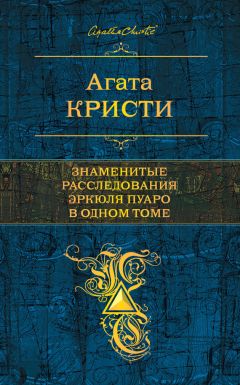Agatha Christie - Английский язык с Агатой Кристи. Убийства по алфавиту
sponging [ˈspɔnʤɪŋ], cadging [ˈkæʤɪŋ], beast [bi:st]
"Indeed I was, sir. Very good she's been to me always, auntie has. I went to her in London when I was eleven years old, after mother died. I started in service when I was sixteen, but I usually went along to auntie's on my day out. A lot of trouble she went through with that German fellow. 'My old devil,' she used to call him. He'd never let her be in peace anywhere. Sponging, cadging old beast."
The girl spoke with vehemence (девушка говорила горячо: «с горячностью»).
"Your aunt never thought of freeing herself by legal means from this persecution (ваша тетя никогда не думала о том, /чтобы/ освободить себя от подобного преследования законными методами; to persecute — преследовать)?"
"Well, you see, he was her husband, sir (но, видите ли, это был ее муж, сэр), you couldn't get away from that (вы не смогли бы от этого избавиться)."
The girl spoke simply but with finality (девушка говорила просто, но тоном, не допускавшим дальнейшего обсуждения; finality — законченность, завершенность).
"Tell me, Mary (скажите мне, Мэри), he threatened her, did he not (он угрожал ей, не так ли)?"
legal [ˈli:ɡǝl], persecution [ˌpǝ:sɪˈkju:ʃ(ǝ)n], threaten [ˈƟret(ǝ)n]
The girl spoke with vehemence.
"Your aunt never thought of freeing herself by legal means from this persecution?"
"Well, you see, he was her husband, sir, you couldn't get away from that."
The girl spoke simply but with finality.
"Tell me, Mary, he threatened her, did he not?"
"Oh, yes, sir, it was awful the things he used to say (это было ужасно, вещи /которые/ он, бывало, говорил). That he'd cut her throat, and suchlike (что он перережет ей горло и подобное). Cursing and swearing too (проклиная и ругаясь к тому же) — both in German and in English (и на немецком, и на английском). And yet auntie says (и все-таки тетушка говорила) he was a fine handsome figure of a man (он был великолепно сложен: «прекрасная красивая фигура мужчины») when she married him (когда она вышла за него). It's dreadful to think, sir (это страшно подумать, сэр), what people come to (до чего могут дойти люди)."
"Yes, indeed (да, в самом деле). And so, I suppose, Mary (и так, я полагаю, Мэри), having actually heard the threats (действительно, услышав эти угрозы), you were not so very surprised (вы не очень удивились) when you learnt what had happened (когда вы узнали, что случилось)?"
throat [Ɵrǝʋt], swear [swɛǝ], dreadful [ˈdredfʋl]
"Oh, yes, sir, it was awful the things he used to say. That he'd cut her throat, and suchlike. Cursing and swearing too — both in German and in English. And yet auntie says he was a fine handsome figure of a man when she married him. It's dreadful to think, sir, what people come to."
"Yes, indeed. And so, I suppose, Mary, having actually heard the threats, you were not so very surprised when you learnt what had happened?"
"Oh, but I was, sir (но я была /удивлена/, сэр). You see, sir (видите ли, сэр), I never thought for one moment (я ни на минуту не думала) that he meant it (что он имел это в виду = что он говорил это всерьез; to mean — иметь в виду, подразумевать). I thought (я думала) it was just nasty talk and nothing more to it (это была просто злая болтовня и ничего больше; talk — разговор; обсуждение; болтовня). And it isn't as though auntie was afraid of him (и будто бы тетушка не боялась его). Why, I've seen him slip away like a dog with its tail between its legs (да, я видела, /как/ он убегал как собака, поджав хвост: «с хвостом между ног») when she turned on him (когда она обращала /свой гнев/ на него; to turn on — нацеливать, направлять). He was afraid of her if you like (он ее боялся, если угодно)."
"And yet she gave him money (и все же она давала ему деньги)?"
"Well, he was her husband, you see, sir (так, он был ее мужем, понимаете, сэр)."
"Yes, so you said before (да, вы уже это говорили)." He paused for a minute or two (он прервался на минуту или две). Then he said (затем он сказал). "Suppose that (представьте что), after all (в конце концов), he did not kill her (он не убивал ее)."
"Didn't kill her?" She stared (не убивал ее? — она уставилась /на него/).
nasty [ˈnɑ:stɪ], tail [teɪl], suppose [sǝˈpǝʋz]
"Oh, but I was, sir. You see, sir, I never thought for one moment that he meant it. I thought it was just nasty talk and nothing more to it. And it isn't as though auntie was afraid of him. Why, I've seen him slip away like a dog with its tail between its legs when she turned on him. He was afraid of her if you like."
"And yet she gave him money?"
"Well, he was her husband, you see, sir."
"Yes, so you said before." He paused for a minute or two. Then he said. "Suppose that, after all, he did not kill her."
"Didn't kill her?" She stared.
"That is what I said (это то, что я сказал = да, именно). Supposing someone else killed her (предположим, что кто-то еще убил ее). Have you any idea (есть ли у вас предположение; idea — идея, мысль, предположение) who that someone else could be (кто этот кто-то еще мог быть)?"
She stared at him with even more amazement (она посмотрела на него даже еще с большим удивлением; to amaze — изумлять, поражать, удивлять). "I've no idea, sir (не имею представления, сэр). It doesn't seem likely (это кажется невероятным), though (тем не менее), does it (не так ли)?"
"There was no one your aunt was afraid of (там не было никого, кого бы ваша тетя боялась)?"
Mary shook her head (Мэри покачала головой). "Auntie wasn't afraid of people (тетушка не боялась людей). She'd a sharp tongue (у нее был острый язык) and she would stand up to anybody (и она бы противостояла кому угодно)."
"You never heard her mention anyone (вы не слышали, /чтобы/ она упоминала кого-нибудь) who had a grudge against her (у кого была злоба по отношению к ней: «против нее»; grudge — недовольство; злоба; зависть)?"
"No, indeed, sir (нет, на самом деле = вовсе нет, сэр)."
though [ðǝʋ], tongue [tʌŋ], grudge [ɡrʌʤ]
"That is what I said. Supposing someone else killed her. Have you any idea who that someone else could be?"
She stared at him with even more amazement. "I've no idea, sir. It doesn't seem likely, though, does it?"
"There was no one your aunt was afraid of?"
Mary shook her head. "Auntie wasn't afraid of people. She'd a sharp tongue and she would stand up to anybody."
"You never heard her mention anyone who had a grudge against her?"
"No, indeed, sir."
"Did she ever get anonymous letters (она когда-нибудь получала анонимные письма)?"
"What kind of letters did you say, sir (какие письма, вы сказали, сэр)?"
"Letters that weren't signed (письма, которые не были подписаны) — or only signed by something in A.B.C. (или подписаны каким-нибудь Эй-би-си)" He watched her narrowly (он пристально посмотрел на нее; narrow — узкий, тесный; тщательный), but plainly she was at a loss (но /было/ ясно, что она была в растерянности; to be at a loss). She shook her head wonderingly (она удивленно покачала головой; to wonder — удивляться; интересоваться).
"Has your aunt any relations except you (есть ли у вашей тети родственники кроме вас)?"
sign [saɪn], narrowly [ˈnærǝʋlɪ], wonderingly [ˈwʌndǝrɪŋlɪ]
"Did she ever get anonymous letters?"
"What kind of letters did you say, sir?"
"Letters that weren't signed — or only signed by something in A.B.C…» He watched her narrowly, but plainly she was at a loss. She shook her head wonderingly.
"Has your aunt any relations except you?"
"Not now, sir (уже нет: «не теперь», сэр). One of ten she was (одной из десяти она была), but only three lived to grow up (но только трое выжили /и/ выросли). My Uncle Tom was killed in the war (мой дядя Том был убит на войне), and my Uncle Harry went to South America (а мой дядя Гарри уехал в Южную Америку) and no one's heard of him since (и с тех пор о нем никто не слышал), and mother's dead, of course (и мама умерла, конечно), so there's only me (так только я)."




